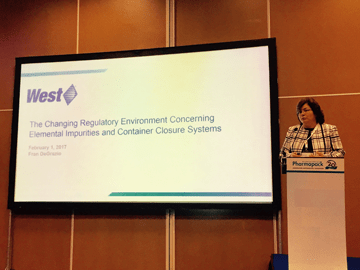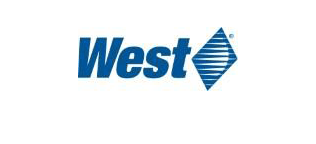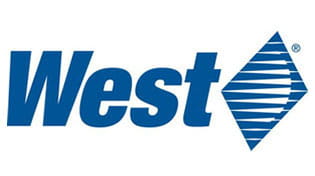Fran DeGrazio Presents on The Changing Regulatory Environment -- Pharmapack 2017
Manufacturers of parental drug package/delivery systems must be up-to-date on the ever-changing regulatory landscape. At Pharmapack 2017, Fran DeGrazio, Vice-President of Scientific Affairs and Technical Services, spoke on the topic of metal impurities in a presentation entitled: The Changing Regulatory Environment Concerning Elemental Impurities and Container Closure Systems
![]()

Reviewed in the presentation are three new guidances and how they relate to package/delivery systems:
- ICH Q3D - Elemental Impurities – Guidance for Industry
- USP Chapter <232> Elemental Impurities – Limits
- USP Chapter <233> Elemental Impurities – Procedures.
ICH Q3D applies to new drug products in NA, EU and Japan - considering 24 metals that must be controlled as potential sources of toxicity. A risk-based approach to understanding and controlling these impurities is presented – with emphasis on permissible exposure levels and potential sources (e.g., raw materials, excipients, manufacturing equipment and package/delivery systems). USP Chapters <232> and <233> will replace <231> (Heavy Metals) as of 1-Jan-2018. In line with ICH Q3D, Chapters <232> and <233> discuss not only permissible exposure levels of 24 metals, but analytical methods for detecting and measuring them. Combined, these guidances provide a comprehensive strategy to understand, control, and measure metal impurities in finished drug products. It is imperative for a manufacturer of package delivery/systems to know the regulatory landscape and how regulations interact. West has this knowledge and can couple it with extensive analytical capabilities to support customers in their development efforts.
To download this presentation and for additional scientific insights on key areas of expertise visit The West Knowledge Center.












